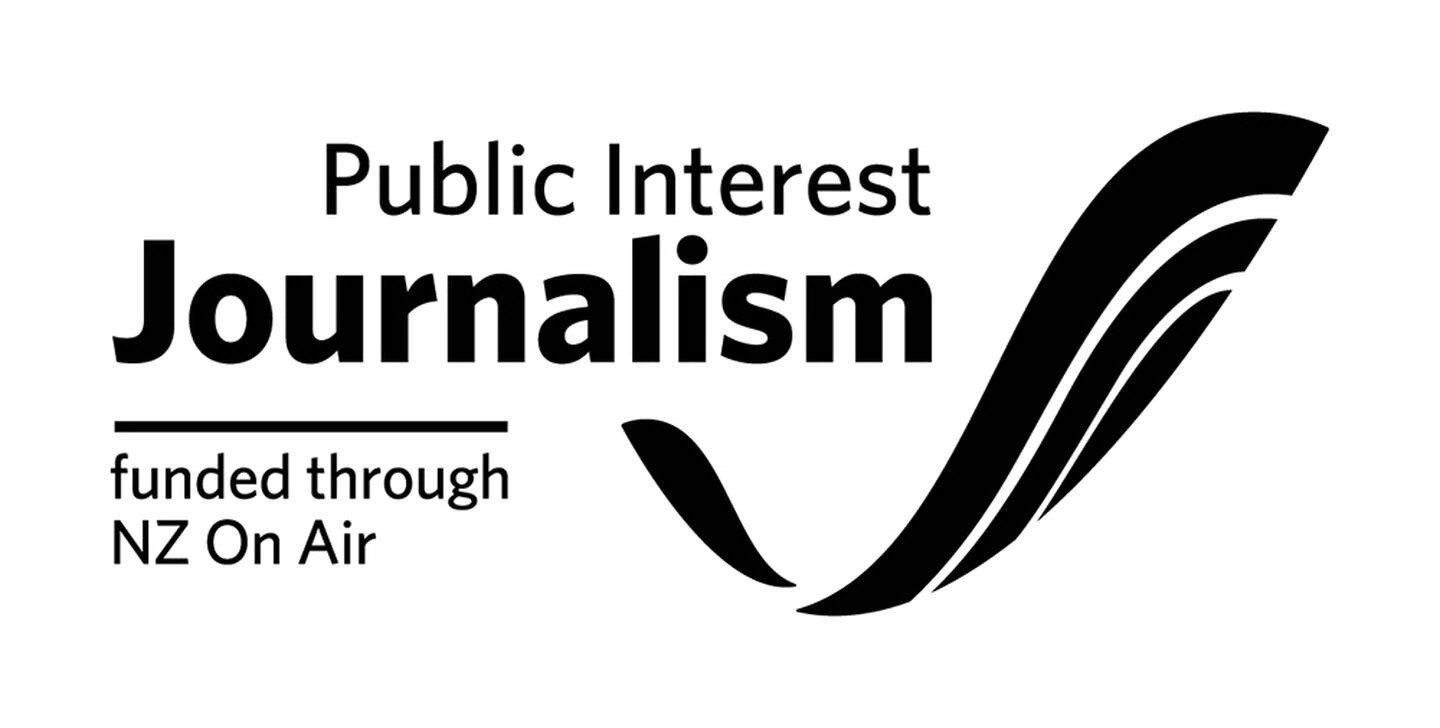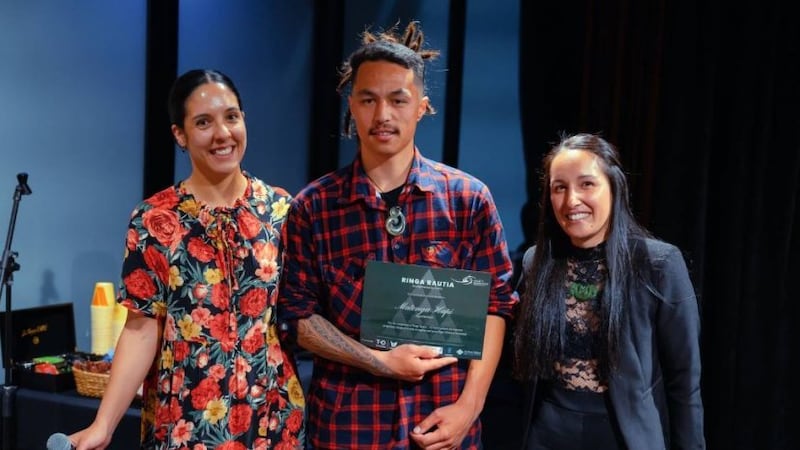Programme facilitator Tatiana Kiwi-Knight (left), with electrician Matenga Hapi and Jennifer Mitchell from Ngāti Whakaue Assets Trust. Photo / Akoni Pakinga
By Tamara Poi-Ngawhika, Te Rito Journalism cadet
When electrician Matenga Hapi first signed up for a business support programme, his goal was to support other Māori into employment.
Now he is planning to do just that after graduating from a 10-week programme to help strengthen and grow Ngāti Whakaue-owned businesses in Rotorua.
Hapi's (Ngāti Whakaue) main line of work is small commercial and general residential.
Hapi became self-employed earlier in March after two years of service to his previous employer upon becoming a qualified electrician.
Hapi was one of 10 kaipakihi [business owners] to graduate from the Ringa Rautia pilot programme on Monday night.
The programme offered group sessions focused on different areas of business, with additional weekly one-on-one sessions with a dedicated business coach. Topics included strategic planning, sales, tax, legalities, building a team and attracting investment.
Hapi, 24, had been in the industry for the past seven years and said he was keen to encourage more Māori into the trades by taking on apprentices.
"We're clever, we know how to work, we know what to do. We just have to apply ourselves."
The self-confessed "numbers-man" said he would love to have a successful business in the future, where he had Māori training at Hapi Electrical and becoming qualified.
"Ideally, I'd have three apprentices at any one time, coming through and learning the trade.
"I want to create opportunities for Māori to 'get into it', sometimes that's all we need."
Hapi said supporting his whānau improved his personal wellbeing and everything he did was for his three kids. He named his business Hapi Electrical in honour of his late koro who gave him advice he had lived by all his life.
"My koro was a big inspiration to me. He always made me strive for the best and would say 'work smarter, not harder'.
"There's always a better way, there's always a smarter way to work."
Ngāti Whakaue Assets Trust distributions manager Tatiana Kiwi-Knight (Ngāti Whakaue, Ngāti Hinerangi, Ngāti Tapu) helped spearhead the programme. She said it was devised to help strengthen and grow Ngāti Whakaue-owned businesses in Rotorua.
Kiwi-Knight hoped Hapi's pakihi [business] continued to take massive strides.
"I hope he achieves his goals of bringing on an apprentice and buying his first home," Kiwi-Knight said.
A report prepared for the Electricity Sector in August 2021 showed around 90 per cent of Māori males studying electrical engineering successfully completed apprenticeships.
It showed there was strong Māori leadership in the sector including business owners, chief executives and managers and saw this as an industry strength.
The report found access to apprenticeship opportunities a challenge. An evaluation in 2017 found only 10 per cent of Māori and Pasifika Trades Training students went on to gain apprenticeships in the industry and some shared their experiences of being confronted with racism in the industry.
The report recommended using Māori leaders within the industry to improve accessibility to apprenticeships which would support positive change in the industry.
In a statement released in September, Social Development and Employment Minister Carmel Sepuloni said the Government's Apprenticeship Boost programme had directly impacted Māori unemployment, which, at 5.5 per cent, was the lowest since records began.
Sepuloni said there were currently 50,000 apprentices and 19 per cent identified as Māori.
"Ensuring all New Zealanders have the opportunity to earn and learn is not only good for them, their wellbeing and whānau, but it's good for our country as a whole. We'll continue to create and invest in these opportunities as we build a productive economy."



